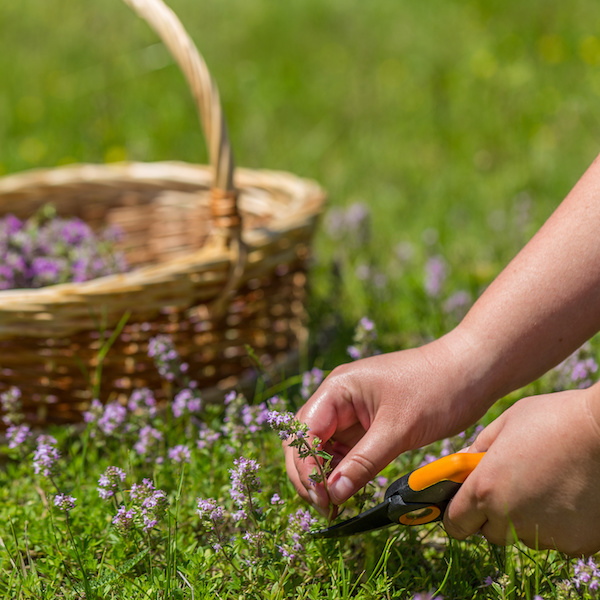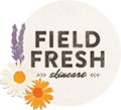
An article published in Permaculture Magazine, Autumn 2017 in which Laura Pardoe, Founder of Field Fresh Skincare, explains how we can benefit from a permaculture approach to skincare. Included in the article are recipes for handmade skincare.
Skin is our edge, and edge is where the action is, when thinking permaculturally. Our skin is how we encounter the world: we absorb information through touch and we unwittingly emit information about our health and emotional state through our skin condition. Skin is also our barrier or filter, again working both ways – absorbing from the environment (whether good or bad) and emitting (by way of pheromones) our own messaging of receptivity levels and compatibility to the world.
What are the things you do every day, without fail, your normal routines? I’m guessing some amount of ablutions and self care are among your list. So if you, as a matter of routine, reach out each morning to a mass-produced bottle with highly-preserved contents, you are daily reinforcing your connection to the society that has produced it. That is a culture that continually bombards us with stimuli and statistics, explanations and endorsements, options and opinions. Just for a moment, stop and think of how many skincare brands you can mention – the list is phenomenal, and constantly growing.
What if in those personal moments you spend with yourself each day, you were connecting not with the commercial world but with the natural world? Actually using ingredients that have come from the natural environment around you, that create a symbiosis between you and that world (because of course, you’ll be washing it back down the watercourses eventually so you’re feeding back in too). The drip, drip, drip effect of that daily connection, however small, is a force that can shape you. It can bring you in touch with the plants that grow around you, their characteristics and they way they respond to the seasons.
It’s another good permaculture principle to apply too – use the resources we have available locally. And, wow, we have an abundance of fantastic ingredients for skincare right on our doorstep. My list of beneficial temperate grown herbs stretches into the hundreds, and that’s before I add the tens of different plant seed oils, each with their own skin-loving properties. Plant seed oils have a wonderful affinity with the oils we produce naturally in our skin, which is why our skins adjust so well to using them. And if you’re worried about putting oil onto oily skin, think about your skin’s system. Why is it producing the oil? Because it believes you haven’t enough. So by feeding it natural oils, your skin will feel less stressed and not need to produce so much of its own.
There’s more affinity to be found too … If we use plants that grow in the kind of environment that we live in, they will be adjusted to the same conditions, the same seasons, the same soils. So, living in temperate conditions, I look to use plants that grow in a temperate climate for my skincare. Modern skincare products often rely on desert or tropically-grown ingredients (argan oil, jojoba oil and coconut oil being some of the current favourites). This perplexes me. Not only does it jar on the basis of sustainability and skincare-miles, I also wonder how much affinity our skins have with ingredients coming from a completely different climate to us. I suspect a seduction of the exotic. Entrancing with perfumed promise is far more sexy than extolling the benefits of understanding a system.
I’d recommend getting to understand your skin, learning how it works, knowing when you’re putting it under stress, and then finding, or making, products that enhance your skin’s system and keep you in touch with the natural world around you. Making your own skincare is a great way to de-stress too.

